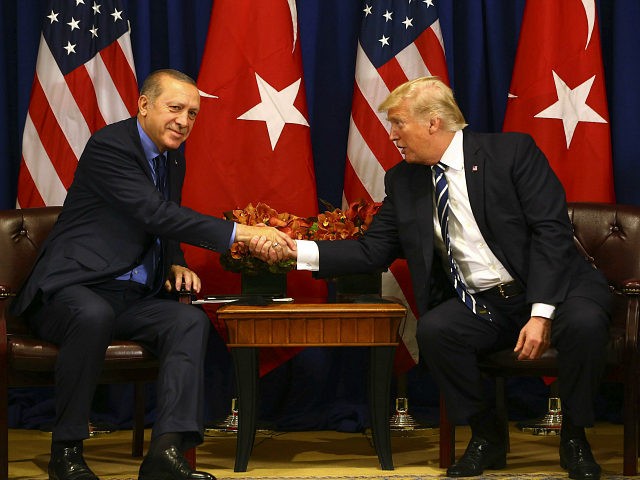WASHINGTON, DC — U.S. Secretary of State Mike Pompeo explicitly told a Senate panel on Wednesday that maintaining America’s relationship with its NATO ally Turkey “has been difficult” in recent years, citing the United States support for Syrian Kurds considered terrorists by Ankara as a hurdle.
Pompeo noted that the United States had made “progress” in mending its relationship with Turkey in recent weeks, adding that he is “hopeful we can begin an even more productive conversation” after the recent re-election of Turkish President Recep Tayyip Erdogan.
During a Senate appropriations subcommittee hearing on Wednesday, the secretary declared that the United States needs to recognize that Turkey will “ultimately be … an important part of a political resolution in Syria.”
Pompeo testified:
In my time in this administration, it has been difficult with the Turks. It was difficult before that as well. Our decision to work closely with the SDF [Syrian Democratic Forces] was something that they were not happy about.
We made progress now about three weeks ago in and around [northern Syria’s] Manbij [region]. We came into an understanding that our forces would work together to resolve a very complicated issue between Kurds and Arabs and a real mix. So progress — and we’re hopeful we can build on that. They will ultimately be a part of a political resolution there and an important part, and we need to recognize that and work alongside them. Now that the [Turkish] election is over. I am hopeful we can begin an even more productive conversation with them.
The SDF is a Kurdish-Arab alliance led by the U.S.-allied People’s Protection Units (YPG), the armed wing of the Kurdish Democratic Union Party (PYD) that controls most of northern Syria. YPG fighters also make up the majority of the SDF.
Early this year, Turkey launched an ongoing offensive to remove the Kurds from power in northern Syria.
Turkey has already pushed the YPG out of territory along its border with the war-ravaged country, namely from Afrin.
U.S. support for the YPG has driven a wedge between the United States and Turkey’s relationship.
Despite Turkey’s concerns that the YPG is an extension of the terrorist Kurdistan Worker’s Party (PKK), the U.S. has continued to support the Syrian Kurds in their efforts against the Islamic State (ISIS/ISIL).
The U.S. did allow Turkey to push the YPG out of northern Syria’s Afrin region this year, refusing to interfere on behalf of the Kurds, claiming that it had no presence in the area.
When Turkey threatened to take northern Syria’s Manbij region from the Kurds, an area that does house an American military footprint, the United States reached an agreement with Turkey to pull out the YPG, arguing that the move will “reduce tensions.”
U.S. military officials maintain that they will not abandon the Kurds.
In the wake of his re-election, which some opposition leaders and international observers have denounced as fraudulent, Turkish President Erdogan vowed to continue Ankara’s military offensive to remove the U.S.-allied Kurds from power in northern Syria.
Asked whether Syria is ready for a U.S. military withdrawal, Pompeo responded, “We’ve taken the lead to achieve the political resolution that has proven elusive … since the uprising in Syria [back in 2011]. We’re not yet in the position where we have sufficient leverage to achieve the political outcome that it’s in the best interest of the United States and the world.”
Explicitly referring to Manbij in Syria, which until recently was home to a stand-off between fighters from the U.S.-backed SDF and Turkish-allied Syrian opposition fighters, Pompeo told lawmakers the American troops would not be pulling out of the area shortly, stressing that United States’ offensive is conditions-based.
The secretary said he worries about the Turkey-Kurdish tensions in northern Syria.

COMMENTS
Please let us know if you're having issues with commenting.